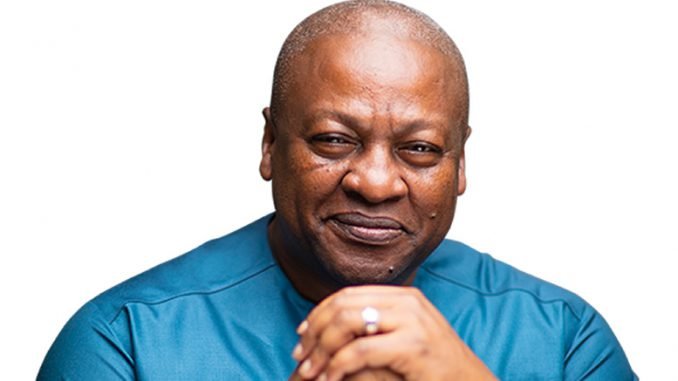Former President John Mahama, Ghana’s prominent opposition leader, has finally succeeded in his third bid for the presidency, securing a historic victory that has captivated the nation. His triumph follows two prior defeats and is attributed to his ability to channel widespread economic discontent into a compelling campaign message.
This win is monumental: Mahama becomes the first leader in the three decades of Ghana’s Fourth Republic—established with the return to multi-party democracy in 1992—to reclaim the presidency after being voted out of office.
Representing the National Democratic Congress (NDC), Mahama defeated Vice President Mahamudu Bawumia, the ruling New Patriotic Party’s (NPP) candidate, who conceded the election on Sunday. Economic hardship dominated the election narrative, as Ghana grappled with a debt default and a $3 billion bailout from the International Monetary Fund.
Mahama, 66, previously Ghana’s president from 2012 to 2017, vowed to “reset” the nation, renegotiate aspects of the IMF agreement, and launch a “24-hour economy” aimed at addressing unemployment—a pressing concern for Ghana’s youth.
Writer, Music Enthusiast, and Statesman
A passionate writer and Afrobeat music lover, Mahama reflected on pivotal moments from his youth in his memoir “My First Coup d’Etat – And Other True Stories from the Lost Decades of Africa.” The 1966 military coup, which disrupted his privileged childhood in northern Ghana, left an indelible mark on him. His family home, uniquely powered by a diesel generator, symbolised their status. Mahama’s father, a junior minister at the time, was detained during the coup but later released unharmed.

Mahama’s political journey spans roles as a member of parliament and chairman of the West Africa Caucus at the Pan-African Parliament in Pretoria. Despite criticism during his presidency, particularly over a crippling energy crisis that led to the infamous “dumsor” (frequent blackouts) and allegations of corruption—none of which resulted in formal charges—his supporters highlight his leadership experience, including his efforts in managing the West African Ebola crisis as ECOWAS chairman.
On corruption, Mahama plans to establish a specialised office to scrutinise government procurements exceeding $5 million, addressing what he describes as a significant source of public sector corruption.
Balancing Progress and Controversy
Mahama’s stance on social issues, such as his support for Ghana’s controversial anti-LGBTQ bill, has drawn both domestic support and international condemnation. Despite these challenges, his spokesperson, Mustapha Gbande, expressed unwavering confidence: “People are looking for change and they trust Mahama to steer the country in a better direction.”
As he prepares to take the reins, Mahama faces high expectations to revitalise the economy and restore public trust, while the shadow of past challenges looms. Whether he can deliver on his promises remains to be seen, but his remarkable comeback has already cemented his place in Ghana’s political history.


